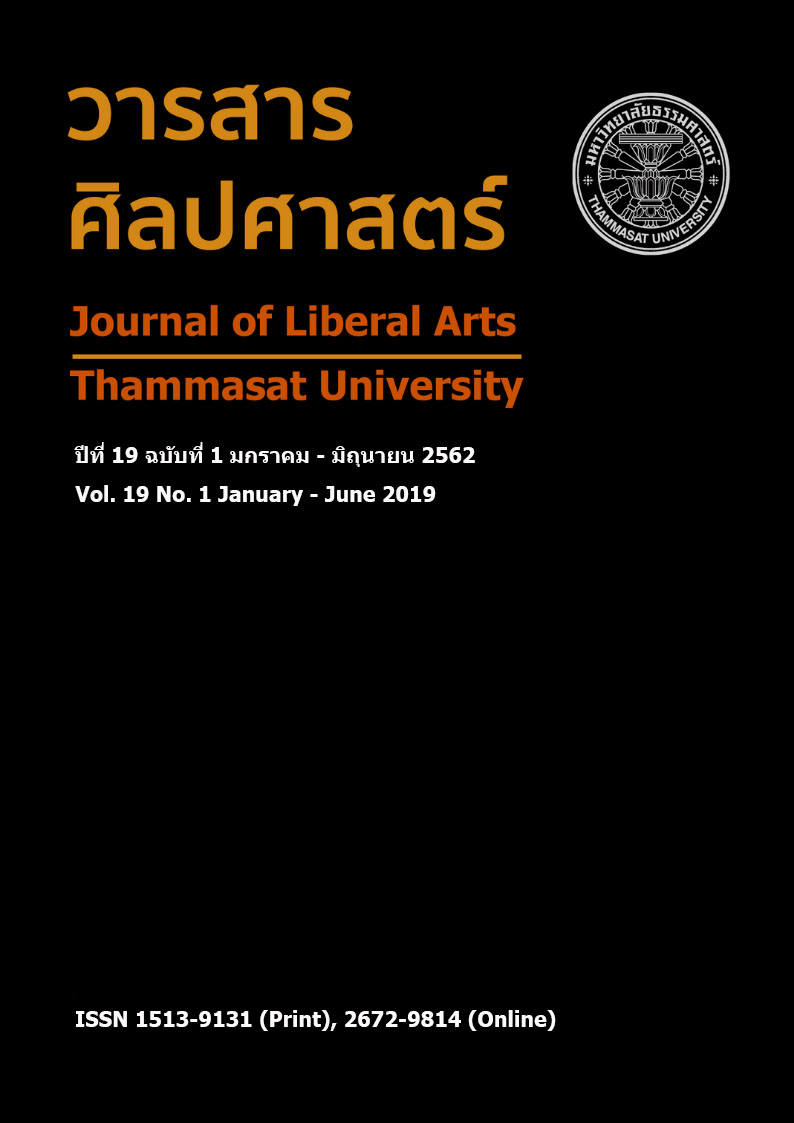Ophelia: Neither a Green Girl Nor a Wanton Woman
Main Article Content
บทคัดย่อ
The article examines the roles of Ophelia in Shakespeare’s Hamlet. Despite her apparent submissiveness and obedience, Ophelia displays her resistance against the male authorities and questions the double standard of the patriarchal order. The article discusses how her behaviors and speeches, as well as her madness and suicide, do not fall easily into any convenient and recognizable category. Hence, her unidentifiability and undefinability force us to question not only her identity and behavior, but our own criteria of defining and identifying her.
Downloads
Article Details
เอกสารอ้างอิง
Bradby, G.F. (1928). The Problem of Hamlet. London: Oxford University Press.
Bevington, D. (1980). The complete works of Shakespeare (3rd ed). Glenview, Ill.: Scott, Foresman.
Camden, C. (1964). “On Ophelia’s Madness.” Shakespeare 400. In J.G. McManaway (Ed). New York: Holt, Rinehart.
Dollimore, J. (1985). “Introduction Shakespeare, cultural materialism and the new historicism,” Political Shakespeare: New Essays in Cultural Materialism, In J. Dallimore & A. Sinfield (Eds.), Manchester: Manchester University Press.
Eissler, K.R. (1971). Discourse of Hamlet and Hamlet: A Psychoanalytic Inquiry. New York: International University Press.
Hibbard, G.R. (Ed.). (1987). Oxford Shakespeare edition of Hamlet. Oxford: Oxford University Press.
Knight, W. (1957). The Wheel of Fire, Fifth revised edition. New York: Meridian.
Leverenz, D. (1978). “The Woman in Hamlet: An Interpersonal View,” Signs, 4(2), 291-308.
Novy, M. (1984). Love’s Argument: Gender Relations in Shakespeare. Chapel Hill: University of Carolina Press.
Showalter, E. (1985). “Representing Ophelia: women, madness, and the responsibilities of feminist criticism.” In P. Parker & G. Hartman (Eds.), Shakespeare and the Question of Theory (pp. 77-94). London: Methuen.
West, R. (1958). The Court and the Castle. New Haven: Yale University Press.
Worsley, A. (2015). “Ophelia’s Loneliness.” ELH, 82(2), 521-551.


